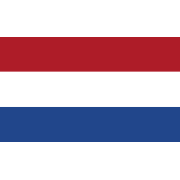General information
However, specific conditions apply:
Important Considerations for B2B E-Invoicing
- Buyer consent is required for electronic invoices.
- Integrity and authenticity can be ensured through internal controls or digital signatures.
- Electronic invoices must be archived for at least seven years, guaranteeing availability and legal validity.
B2G E-Invoicing in the Netherlands
Since 2020, suppliers to Dutch central authorities must submit e-invoices via the Peppol network. The OIN (Organization Identification Number) is used to route invoices to government entities.
Accepted submission methods:
- Via accounting software connected to Peppol
- Through Peppol-certified service providers
- Using the government supplier portal
Common Data Formats
- SI-UBL 2.0: Preferred Dutch format, based on European standard EN 16931
- Peppol BIS 3.0: Standard format for Peppol network exchanges
- Other formats include UBL-OHLN, SETU (RH-XML), etc.
E-Invoicing Timeline in the Netherlands
- July 1, 2016: EU Directive 2014/55/EU transposed into Dutch law
- April 18, 2019: Mandatory B2G e-invoicing for government suppliers
- October 1, 2020: Nederlandse Peppolautoriteit (NPa) becomes national Peppol authority
- July 1, 2030: Mandatory e-invoicing and e-reporting for cross-border B2B transactions under EU VAT in the Digital Age (ViDA)
Penalties for Non-Compliance
Non-compliance with B2G e-invoicing rules may result in financial penalties. B2B e-invoicing remains voluntary for now, but businesses should prepare for upcoming obligations under ViDA.
Implementation Outlook and Analysis
The Netherlands follows EU trends toward broader e-invoicing mandates, with Peppol as the backbone for interoperability. While B2B e-invoicing is currently voluntary, upcoming 2030 requirements signal that full digitization is inevitable.
Other news from Netherlands
Accommodation VAT Rate Rises to 21%; Culture, Media, and Sports Keep 9% Rate
 Netherlands
Author: Ljubica Blagojević
Netherlands
Author: Ljubica Blagojević
The planned VAT increase from 9% to 21% for accommodation, culture, media, and sports has been partially reversed. From 1 January 2026, the 9% VAT rate will remain for culture, media, and sports, while accommodation will move to the 21% standard rate. This change protects cultural and sports sectors from higher costs, while the accommodation sector is expected to face increased prices. However, in... Read more



New VAT Guidance Clarifies Rules for Self-Billing Invoices
 Netherlands
Author: Ljubica Blagojević
Netherlands
Author: Ljubica Blagojević
The VAT Decree has been updated with new guidance on self-billing, where customers issue invoices instead of suppliers. While common in sectors like waste management and municipalities, the supplier remains fully liable for accuracy and compliance. Main rules require prior agreement, timely objections if invoices are rejected, and full legal compliance. In municipal practice, self-billing affects VAT reporting and must be recorded correctly to avoid costly errors. Joint invoices, such as in vehicle trade-ins, also carry specific VAT obligations, regardless of dealer practices. Organizations must stay current with updates, ensure invoices meet all requirements, and clarify whether they act as VAT-registered businesses or government bodies, as this directly impacts pricing, VAT treatment, and compliance. Read more
Subscribe to get access to the latest news, documents, webinars and educations.
Already subscriber? Login


Netherlands Saves 9% VAT for Culture; Accommodation VAT Rises to 21%
 Netherlands
Author: Ljubica Blagojević
Netherlands
Author: Ljubica Blagojević
On 2 October 2025, the Dutch House of Representatives approved a bill amending the 2025 Tax Plan. The law keeps the reduced 9% VAT rate for culture, media, and sports, reversing the planned increase to 21%, while accommodation will still see its VAT rise to 21% from January 2026. To offset the revenue loss, inflation adjustments to certain income and payroll tax brackets will be limited. The measu... Read more



New document was uploaded: Handbook on Cash Registers
 Netherlands
Author: ............
Netherlands
Author: ............
This brochure is for all entrepreneurs who use a cash register system or are planning to purchase one. It is also for cash register software suppliers and tax service providers. In the brochure, you can read more about: your business and the cash register system Read more
Subscribe to get access to the latest news, documents, webinars and educations.
Already subscriber? Login


New document was uploaded: General Act on National Taxes
 Netherlands
Author: ......
Netherlands
Author: ......
The Act establishes uniform rules for levying and collecting national taxes, including income tax, VAT, excise duties, and customs levies. It defines procedures for filing tax returns, issuing assessments, imposing additional assessments, and handling refunds and provisional payments Read more
Subscribe to get access to the latest news, documents, webinars and educations.
Already subscriber? Login


New document was uploaded: Turnover Tax in the Netherlands
 Netherlands
Author: ...............
Netherlands
Author: ...............
This brochure is intended for non-resident entrepreneurs who are not based in the Netherlands. If you buy or sell goods or perform services in the Netherlands, you will have to deal with the Dutch rules on VAT Read more
Subscribe to get access to the latest news, documents, webinars and educations.
Already subscriber? Login


New document was uploaded: Topic interpretation: Curacao
 Netherlands
Author: Ljubica Blagojević
Netherlands
Author: Ljubica Blagojević
This document aims to explain how fiscalization works in the Curacao. Unlike the Netherlands which is a non-fiscal country, Curacao has hardware and software fiscalization. Retailers are required to use cash register system that is compatible with supporting software that meets certain requirements. Read more
Subscribe to get access to the latest news, documents, webinars and educations.
Already subscriber? Login

